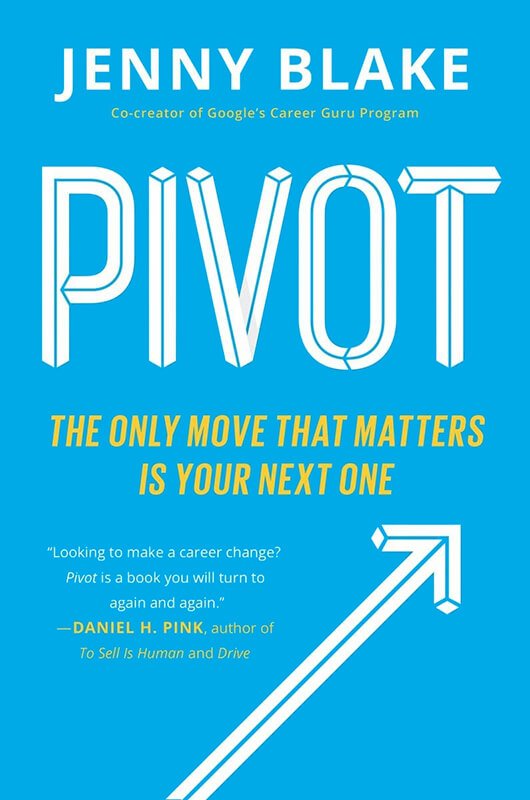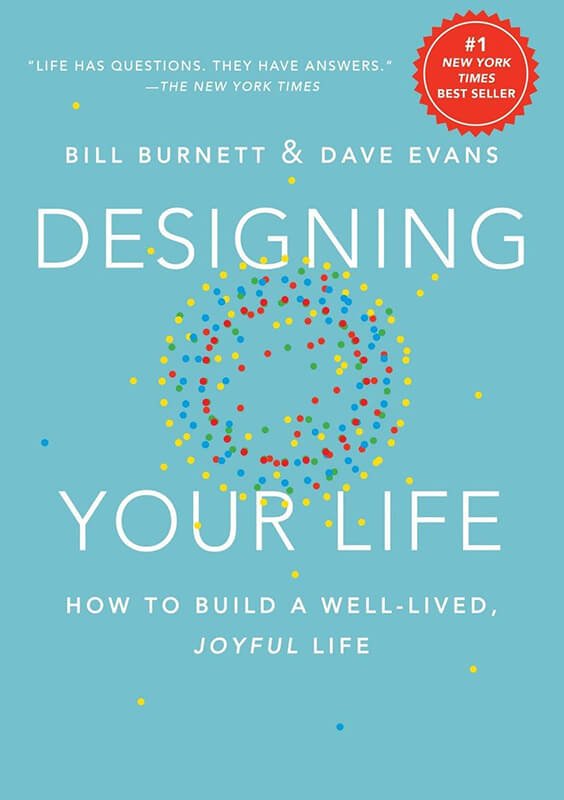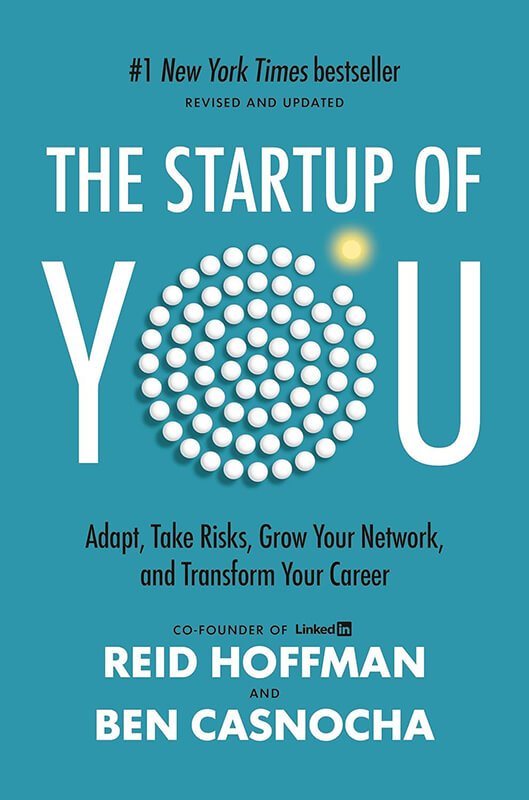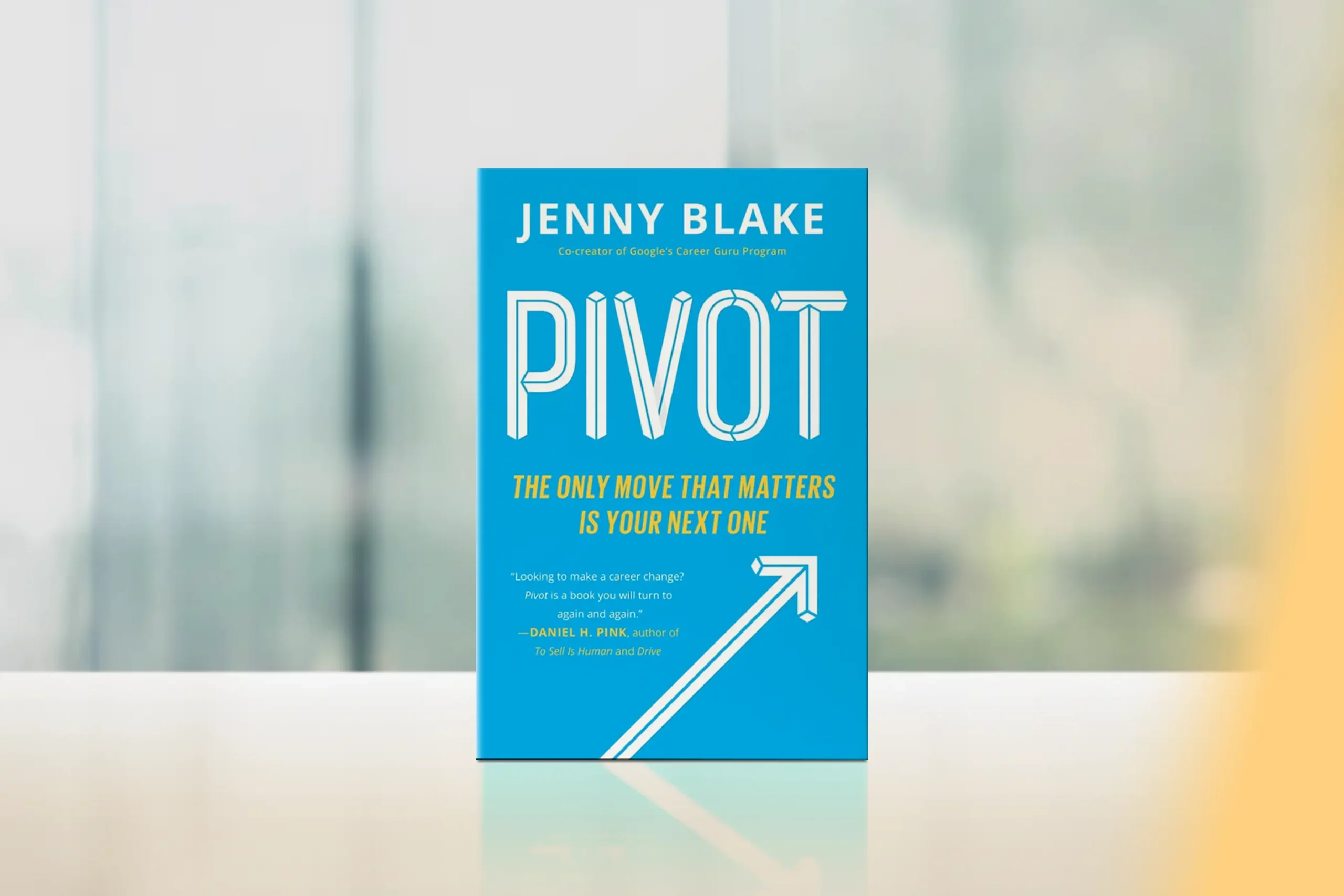In an era where the average person changes careers multiple times, Jenny Blake’s “Pivot: The Only Move That Matters Is Your Next One” (published in 2016) arrives as a timely roadmap for navigating professional transitions.
As a former Google career development program manager, Blake draws from both personal experience and extensive research to present a methodical approach to career changes.
The books core premise is that pivoting – changing direction while building on existing foundations – is the new normal in today’s dynamic work environment.
Core Concepts
Blake structures the pivot method around four key stages, with an emphasis on building adaptability:
- Plant: Identifying your existing strengths, interests, and unique value proposition
- Scan: Exploring new possibilities and opportunities while building strategic connections
- Pilot: Running small experiments to test new directions and gather meaningful feedback
- Launch: Making your move with confidence and clarity, while maintaining momentum
- Building Career Agility: Developing an ongoing pivot mindset that embraces continuous learning
Each stage builds upon the previous one, creating a cohesive framework that combines strategic thinking with practical action steps.
Chapter-by-Chapter Review
The Pivot Method
Blake introduces the foundational framework, explaining why traditional career planning often fails and how the pivot method offers a more effective approach. She shares compelling research on why adaptability is crucial in today’s rapidly evolving workplace.
Plant
This chapter helps readers inventory their existing skills, values, and interests, creating a strong foundation for future moves. Blake provides practical exercises for identifying transferable strengths and understanding your authentic career drivers. The chapter includes detailed self-assessment tools and reflection exercises.
Scan
Readers learn systematic approaches to exploring potential opportunities while maintaining financial stability. The chapter includes strategies for effective networking and market research, with particular emphasis on building meaningful professional relationships and identifying emerging trends in your target field.
Pilot
This section outlines how to conduct small experiments and gather data before making major changes. Blake offers concrete methods for testing new career directions with minimal risk, including specific examples of successful career experiments and how to learn from setbacks.
Launch
The final stage addresses how to execute your pivot successfully, including timing considerations and managing the emotional aspects of change. Blake provides detailed guidance on building momentum and maintaining confidence throughout the transition.
Key Strengths
- Practical, actionable framework for career transitions
- Rich with real-world examples and case studies
- Excellent balance of strategy and tactical advice
- Strong emphasis on risk management
- Valuable worksheets and exercises throughout
Potential Drawbacks
- Some exercises may feel time-consuming
- Framework might seem overwhelming for quick decisions
- Could benefit from more industry-specific examples
Who This Book Is For
This book is particularly valuable for:
- Professionals considering career changes
- Entrepreneurs planning their next venture
- Recent graduates mapping their career paths
- Anyone feeling stuck in their current role
Final Review
“Pivot” is an invaluable guide for anyone navigating career transitions in today’s rapidly changing workplace. Blake’s methodical approach helps reduce the anxiety of career changes by breaking them down into manageable steps. The book’s strength lies in its combination of strategic thinking and practical implementation tools, making it particularly effective for those who want a structured approach to career change.
While the process requires significant self-reflection, the framework provides a reliable path to making informed career decisions. The book’s emphasis on small experiments and risk management is especially valuable in today’s uncertain economic environment. Blake’s personal experiences at Google and as an entrepreneur add credibility and real-world application to the concepts.
Rating: 4.4/5
A practical and empowering guide that transforms career transitions from daunting leaps into manageable pivots, offering a sophisticated yet accessible approach to professional reinvention.

Alternative Books
For readers who enjoyed “Pivot,” here are some highly-rated alternatives that complement Blake’s approach:

“Designing Your Life” by Bill Burnett and Dave Evans
Applies design thinking principles to career and life planning.
Rating: 4.3/5

“What Color Is Your Parachute?” by Richard N. Bolles
A classic guide to job hunting and career changes with updated strategies.
Rating: 4.7/5

“The Start-Up of You” by Reid Hoffman and Ben Casnocha
Applies entrepreneurial principles to career development and professional growth.
Rating: 4.4/5





